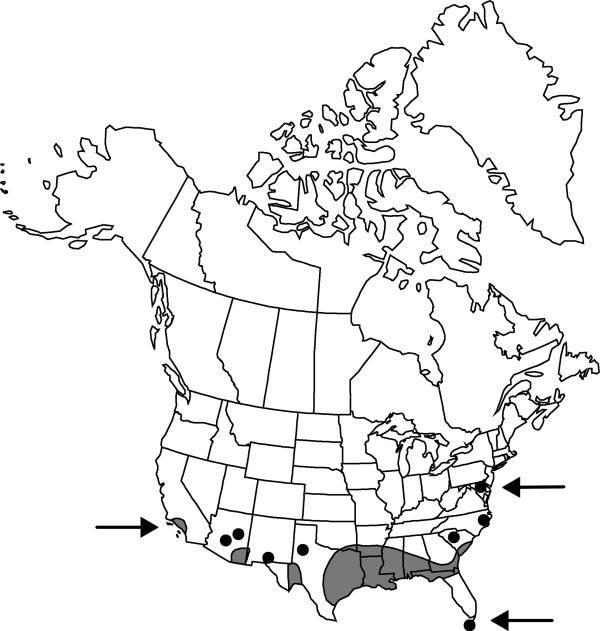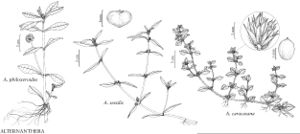Alternanthera caracasana
in A. von Humboldt et al., Nov. Gen. Sp. 2: 205. 1818.
Herbs, perennial, 1–5 dm. Stems prostrate to procumbent, villous, glabrate. Leaves sessile; blade rhombic-ovate, oval, or obovate, usually longer than broad, 0.5–2.5 × 0.3–1.5 cm, apex rounded, apiculate, sparsely villous, glabrate. Inflorescences axillary, sessile; heads white to stramineous, ovoid, 0.5–0.8 × 0.4–0.6 cm; bracts shorter than tepals, apex long-attenuate, aristate. Flowers: tepals dimorphic, whitish to stramineous, lanceolate, 3–5 mm, apex acuminate, spinose tipped, densely villous, hairs barbed; stamens 5; pseudostaminodes triangular or subulate, shorter than filaments, margins usually entire, rarely dentate. Utricles included within tepals, brown, ovoid-orbicular, 1.5 mm, apex slightly truncate. Seeds ovate-orbiculate, 1–1.5 mm.
Phenology: Flowering summer–fall.
Habitat: Gravel, sand bars, sidewalks
Elevation: 0-2000 m
Distribution

Ala., Ariz., Ark., Calif., Fla., Ga., La., Md., Miss., N.Mex., N.C., Okla., S.C., Tex., Mexico, Central America, South America.
Discussion
Selected References
None.
